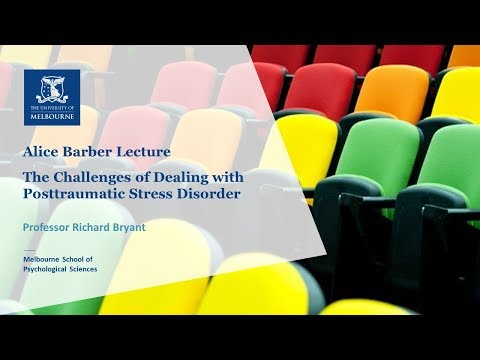Description:
Explore the complexities of posttraumatic stress disorder (PTSD) in this 47-minute lecture from the University of Melbourne. Delve into the current understanding of PTSD development, progression, and most effective treatments. Examine the biological mechanisms and social factors influencing trauma adaptation, including insights from longitudinal analyses of Australian disaster survivors. Investigate recent evidence on neural factors identifying treatment response and attempts to enhance treatment by leveraging key neural mechanisms. Learn about global PTSD challenges and efforts to address trauma in low and middle-income countries with limited healthcare systems. Gain comprehensive knowledge on topics such as fear conditioning models, extinction learning, neurobiological models, cognitive behavior therapy, neuroimaging studies, genetics in treatment outcomes, and social network analysis in the context of PTSD.

The Challenges of Dealing with Posttraumatic Stress Disorder
Add to list
#Health & Medicine
#Nutrition & Wellness
#Mental Health
#Trauma
#Science
#Biology
#Genetics
#Data Science
#Social Network Analysis
#Neuroscience
#Neuroimaging
#Neurobiology